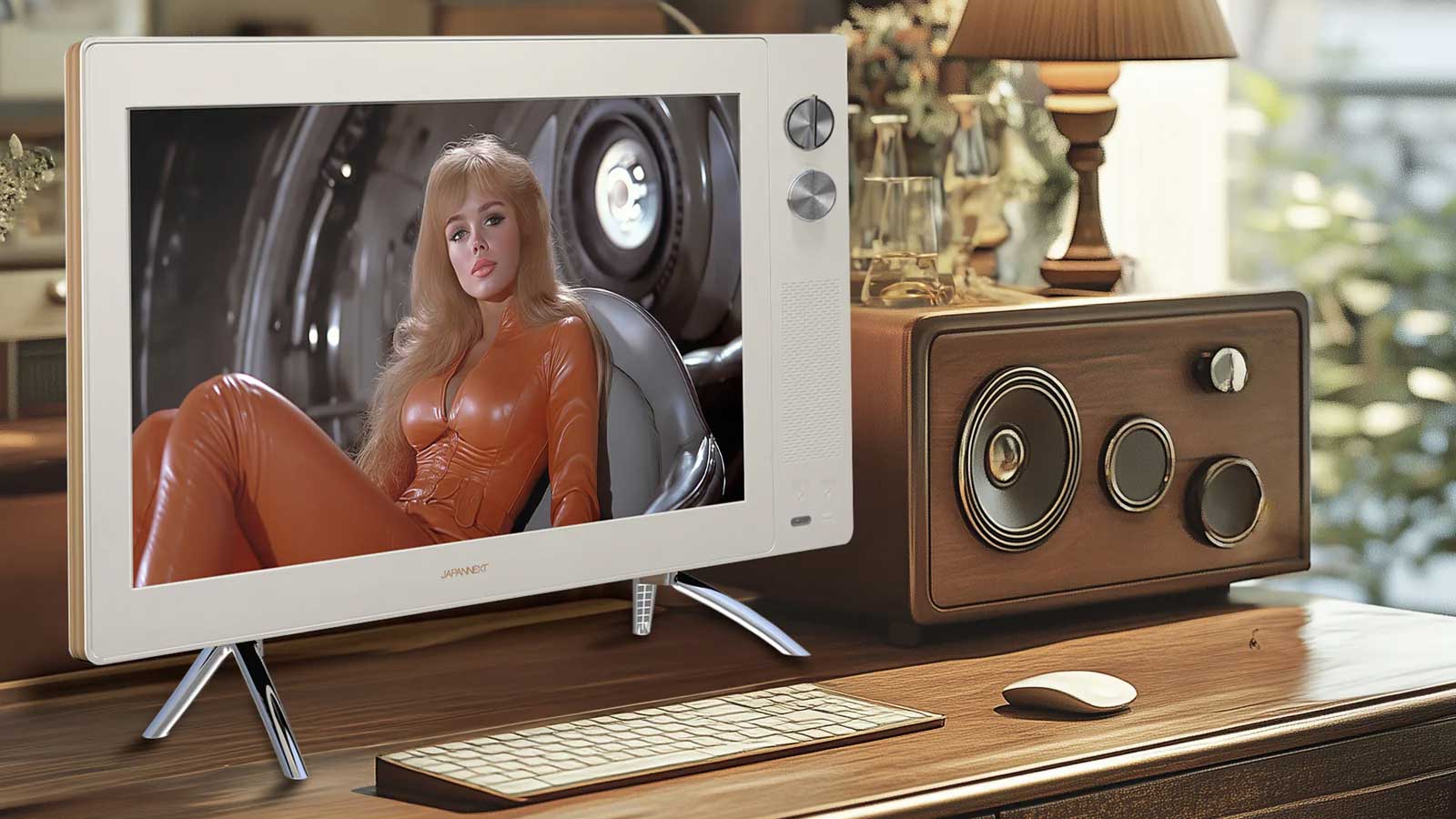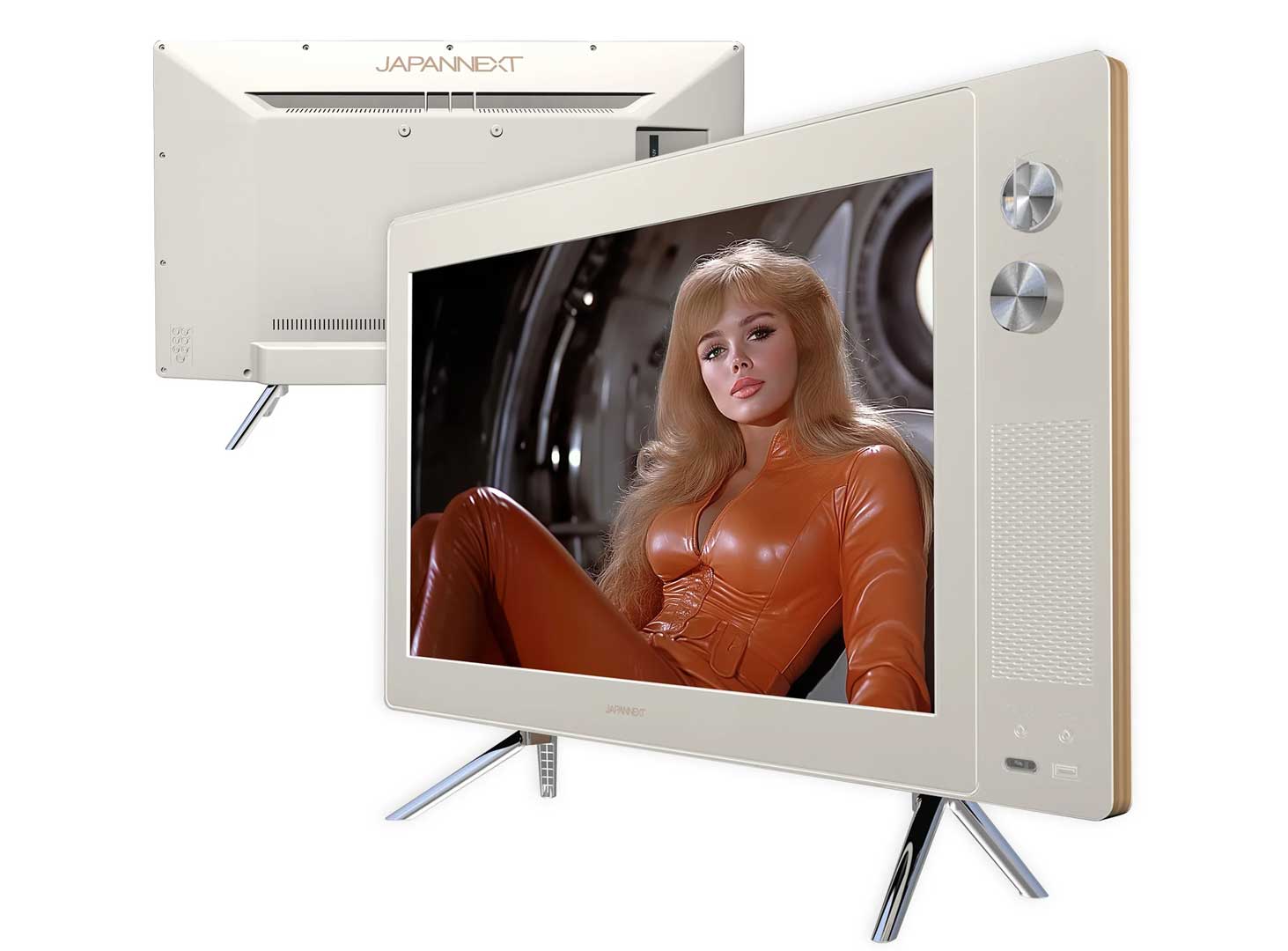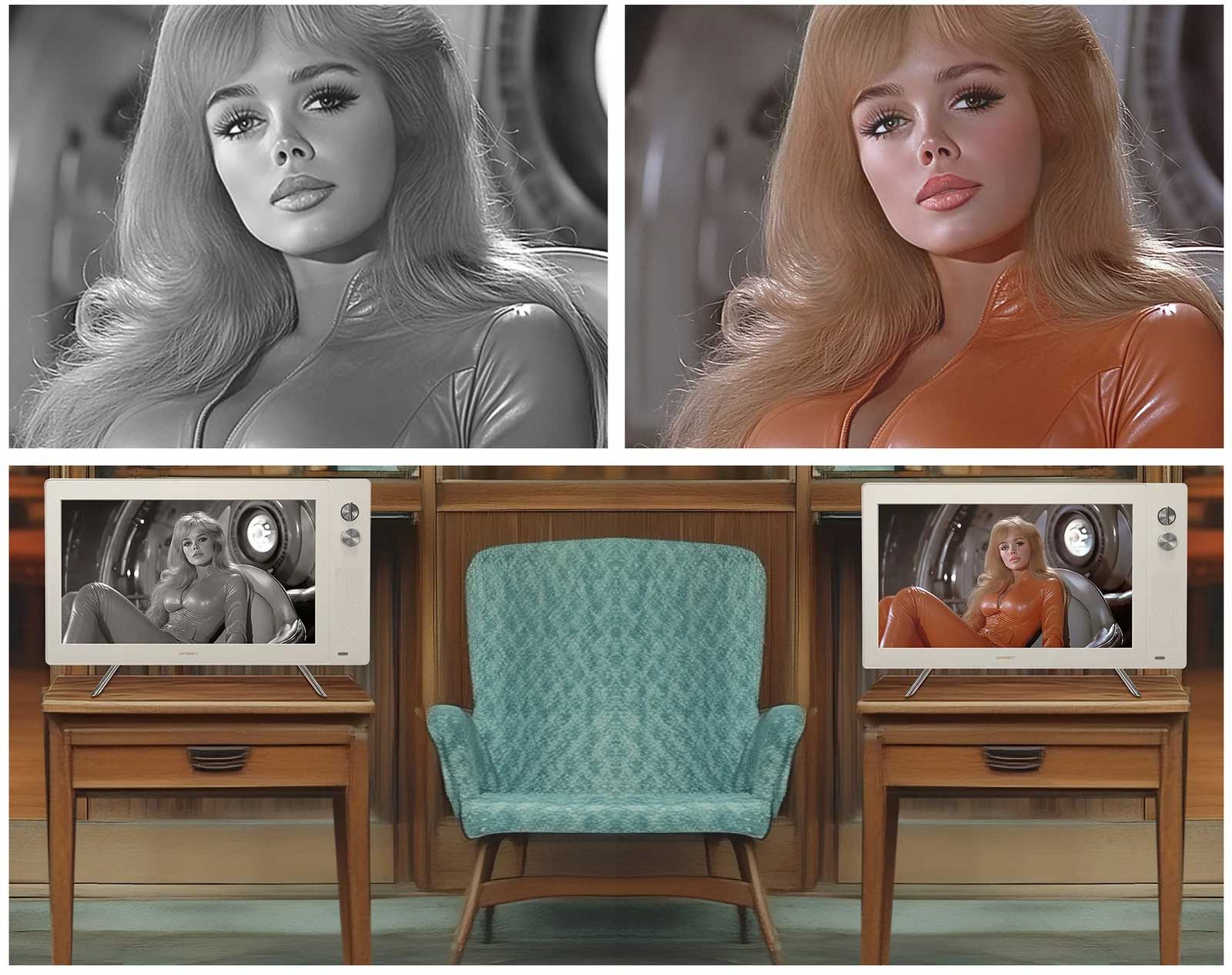
A new gaming monitor has been launched to appeal to fans of retro aesthetics. The new JAPANNEXT JN-V236G180F-RETRO is a 23.6-inch 1080p VA-panel equipped HDMI/DP monitor with up to a 180 Hz refresh rate, plus FreeSync and 120 Hz PlayStation 5 compatibility. However, the typically modern specs are wrapped up in a 1960s or 70s-era living room TV-style housing, complete with a pair of dials on the sizable right-hand slab of bezel.
JAPANNEXT says that its new gaming monitor will scratch the nostalgia itch with its styling and monochrome mode. Like some of the oldest TVs, it has two dials up front, but many functions are set and adjusted via a separate OSD menu system.
On old TV sets, there were often a pair of dials on the front for channel tuning and audio volume adjustments. Here, the top dial is used for turning on and selecting crosshairs (right) or for display brightness adjustments (left). According to the PR and manuals, the lower dial is for audio volume adjustment.


Of course, a modern monitor needs more controls than that, so the front dials are augmented by a more typical array of controls on the rear right-hand side. There, you will find buttons to power the monitor on and off and access, navigate through, and adjust all the usual settings.
We have already highlighted this retro monitor's special appeal and features, but what about its more ‘normal’ specifications? As you can see from the specs table, the JN-V236G180F-RETRO isn’t the most advanced gaming display.
Highlights above are the 180 Hz max refresh, FreeSync compatibility, 1ms response time, and perhaps the gray mode (for some). There are also a handful of game modes for genres like RTS, FPS, and so on. We are less impressed by the maximum brightness of 300 nits and the display’s sRGB gamut of 90% / DCI-P3 coverage of 80%. It probably wouldn’t make our shortlist of the best gaming monitors.
JAPANNEXT will release the new JN-V236G180F-RETRO on Friday, with a price tag expected to be a smidgeon under JPY30,000 ($200). We don’t often see JAPANNEXT products in the States, but it sells its products in France, Germany, Italy, and Spain.







